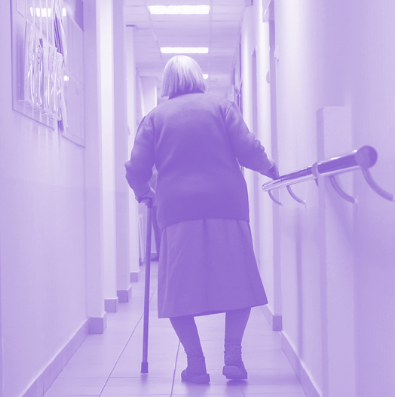Aged care AI slammed
 South Australia's health minister has criticised a federally-funded trial of CCTV in aged care.
South Australia's health minister has criticised a federally-funded trial of CCTV in aged care.
A 12-month trial saw CCTV being used in both common areas and bedrooms in residential aged care facilities, after cases in which abuse was caught on cameras planted by family members.
The cameras were meant to use artificial intelligence technology to detect falls and screams.
However, SA Health Minister Chris Picton says the trial alerted staff to 12,000 false incidents, which he labelled “completely unacceptable”.
“That meant that staff had to respond time after time after time to false reports alerting from this system; that meant that they were taking time away from caring for patients at the bedside,” Mr Picton said.
A report from the $785,000 trial says staff could not respond to every alert, resulting in at least one instance where staff did not respond to an actual fall.
“The report notes that where there were some cases of actual true reports that were noted, it meant that staff weren't responding to them because it became a case of the boy who cried wolf,” Mr Picton said.
“If you've got so many false reports, that when there's one actual true one, then you're not necessarily going to give that the priority that it needs.”
The AI-enabled cameras captured video and audio and sent out alerts when excessive sounds or movements were detected, but they were mistakenly set off when staff would crouch or bend down to care for residents.
A review of the pilot (accessible in PDF form) says that “the way in which these events had been programmed were not well aligned to the common movement patterns of residents at the sites”. The AI algorithm flagged “movements or sounds that are reasonably expected in residential care” as problematic and repeatedly raised alerts.
The official report states that additional workload associated with the surveillance cameras needed to be carefully considered, as the alerts were overwhelming staff already struggling due to shortages and other workforce pressures.
“Whilst the accuracy of the system improved over time (as it was designed to), over the 12 months, it did not achieve a level that would be considered acceptable to staff and management at the sites,” the independent audit found.
Mr Picton said there is still potential for CCTV to be used in the future.
“Clearly we now have to start from scratch because this was a completely botched program,” he said.
A federal Department of Health and Aged Care spokesperson has told reporters that there were a number of useful findings from the report.
“For example, the study showed a broad degree of acceptance amongst aged care residents, families and staff who participated in the trial,” they said.
“The number of false alerts were greater than anticipated by South Australia Health. It is important to note that these false alerts did not place any residents or staff in danger.”







 Print
Print